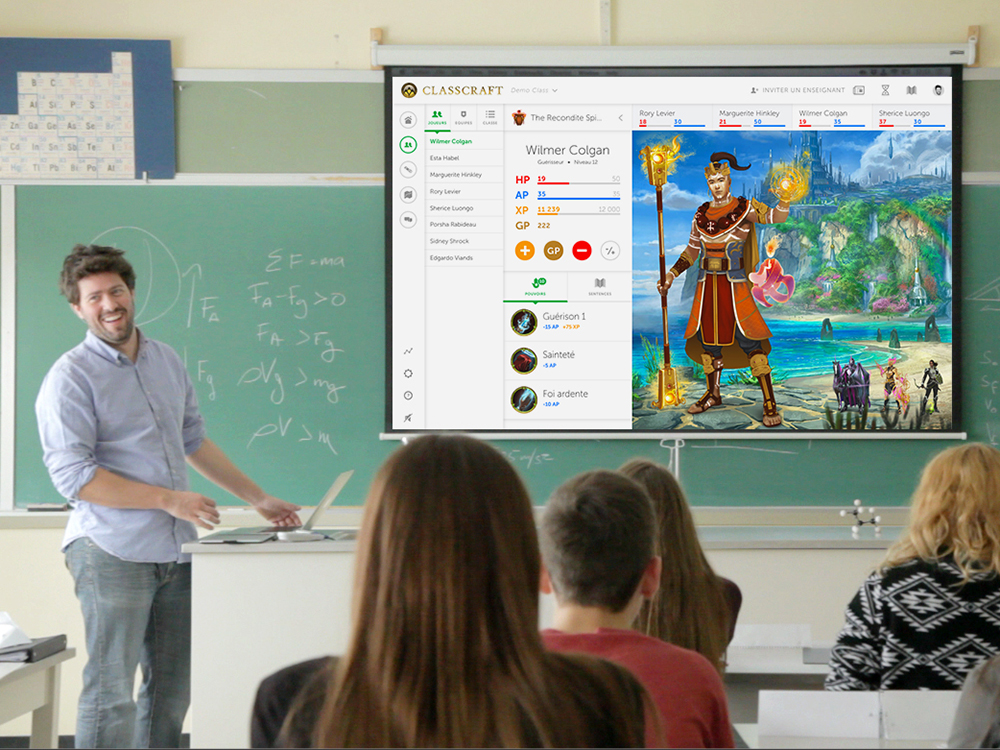
B-CITI: AI serving the public
Vivianne Gravel’s Story
This wasn’t Vivianne Gravel’s first company in the technological innovation sector. In fact, her company Lipso (sold in 2010) pioneered electronic boarding passes, with Air Canada being the first airline internationally to use the technology, as well as the remote payment system used by electronic parking meters. The entrepreneur long understood that technology, when used wisely, can significantly simplify people’s lives and become indispensable. After having founded her second company, Metrix, she evaluated the market and started to seriously assess the opportunities offered by artificial intelligence. That was when she realized that in order to have an “intelligent city,” you first need to know how to centralize useful data (from garbage collection schedules to library services, for example) in order to then develop concrete tools for managing services.
Intelligent development
Gravel’s entrepreneurial approach always puts the needs of citizens and ease of use first. Throughout her career she has noticed that in order for a technology to become a permanent part of people’s habits, it must bring a return that is greater than the cost of setting it up, and it also has to respond to real needs.
For the B-CITI platform, she therefore inquired into the needs of her first client, the City of Brossard, and approached researchers at the École de technologie supérieure (ETS) in order to present them with her problem. The entrepreneur invested a sum that was matched by the institution, and in the space of six months the project was launched. “Once the Cities saw the result I was signing contracts one after the other. After that it was easy to get financing.” Her collaborative approach with researchers, which usually only happens within the context of three-year educational programs, is a unique accomplishment in Canada. But for Gravel, it’s the only way to fly. “Instead of putting all the available money into research and development, you can take this money and use it to start a university research program. This allows you to seek out other financing in order to multiply the value of your equity, allowing the entrepreneur to avoid dilution and create a viable prototype. This protects investors and it creates a showcase that will attract other investors.”
Intelligence is great, but for what?
“Innovation is like a plant: You have to take care of it and give it love,” explains Gravel. Above and beyond the innovation itself, you also have to ensure that it’s easy to integrate and use in order for it to last. “If I create work for the City instead of reduce it, they will just stop using the technology.” In other words, you need to have a vision that offers solutions, emphasizes Gravel. “When you talk about artificial intelligence to the Cities, that doesn’t really speak to them. But if you talk about a system that will reduce waiting lines by half, then they get it. You have to remember that technology is at the service of people, and not the reverse.” Most of her work has involved an ability to target a very precise need and match it with a technology that can respond to that need and become part of everyone’s daily life. Just think about her payment system for electronic parking meters, for instance, which has now been copied by everyone. Who could live without it today?
Another element that the domain of artificial intelligence needs to address is ethics.
“It’s imperative to create a company that is trustworthy. Artificial intelligence relies on data, so you can’t just do whatever you want with these data. Citizens need to be able to trust you.”
Vivianne Gravel
Rapid growth
Since its launch, B-CITI has attracted many urban administrators. Its growth has been so rapid that Gravel had to take a step back when she discovered that her system’s architecture contained a flaw, which was in part due to her reliance on a team that had too little experience. “A company is a living thing, you have to be able to look at it and make rational decisions at any given moment. You need to make the right decisions quickly—you don’t want to upset the parties involved, so it’s best not to delay. In my case, I had to replace a certain number of junior employees by more experienced specialists.”
Now established in 15 cities, B-CITI will soon add to its roster the first geo-located virtual assistant for urban residents that can answer questions at any hour of the day. It’s a project that represents Gravel’s first love: improving people’s lives. “I love the intellectual challenge of my work. It’s hard to create a technology that will become part of people’s everyday experience. But it’s amazing to build something you can be passionate about.”
B-CITI in Numbers
- 18: Number of years Vivianne Gravel has worked as an entrepreneur
- 25: Number of B-CITI employees
- 15: Number of partner cities/customers to date
WANT TO LEARN MORE?
Visit the B-CITI website



